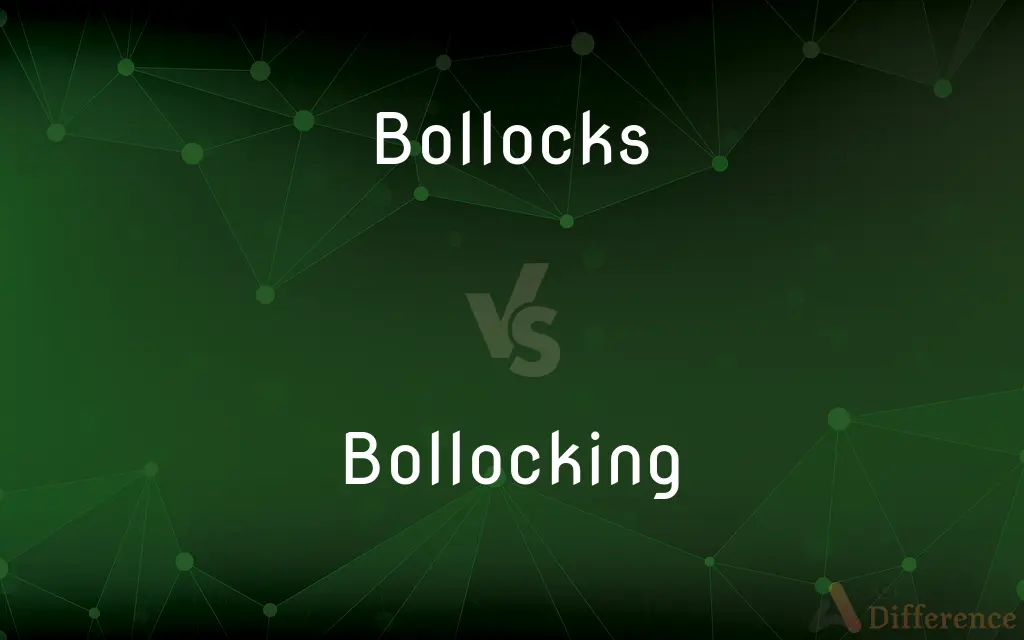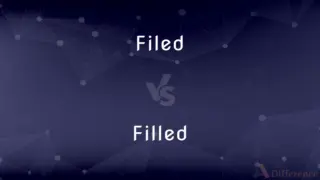Bollocks vs. Bollocking — What's the Difference?

Difference Between Bollocks and Bollocking
ADVERTISEMENT
Compare with Definitions
Bollocks
Bollocks () is a word of Middle English origin, meaning "testicles". The word is often used figuratively in British English and Hiberno-English in a multitude of negative ways; it most commonly appears as a noun meaning "rubbish" or "nonsense", an expletive following a minor accident or misfortune, or an adjective to describe something that is of poor quality or useless.
Bollocking
A severe reprimand.
Bollocks
The testicles.
Bollocks
Nonsense; rubbish (used to express contempt or disagreement, or as an exclamation of annoyance).
Bollocks
A testicle.
ADVERTISEMENT
Bollocks
Bollocks Foolish talk; nonsense.
Bollocks
The testicles (sometimes used in the singular)
Bollocks
Nonsense or information deliberately intended to mislead.
That's a load of bollocks, mate!
Bollocks
An idiot, an ignorant or disagreeable person.
Don't mind him; he's only an oul' bollocks!
Bollocks
Ellipsis of dog's bollocks
Bollocks
To break.
The telly's bollocksed.
Bollocks
(also bollocks up) To fail (a task); to make a mess of.
I bollocksed that exam.
Bollocks
An expression of anger, frustration, etc.
Oh bollocks, I'm late for work!
Bollocks
An expression of incredulity.
Bollocks! That never happened!
Bollocks
To make a mess of.
Bollocks
Make a mess of, destroy or ruin;
I botched the dinner and we had to eat out
The pianist screwed up the difficult passage in the second movement
Share Your Discovery

Previous Comparison
Anorak vs. Cagoule
Next Comparison
Filed vs. Filled














































